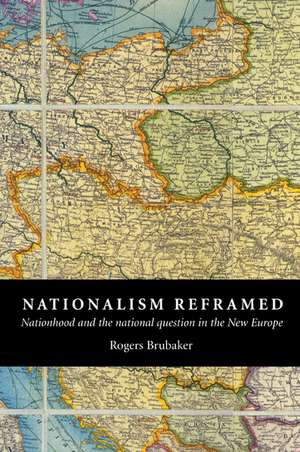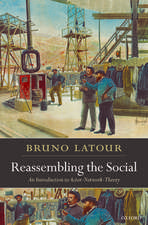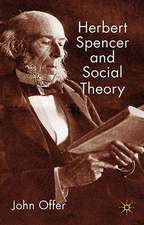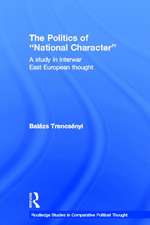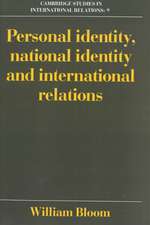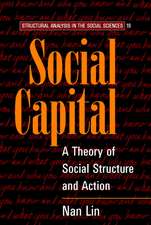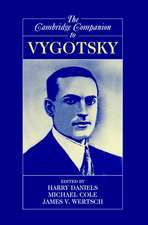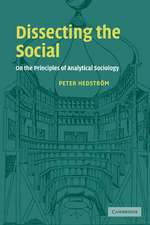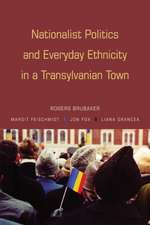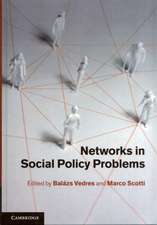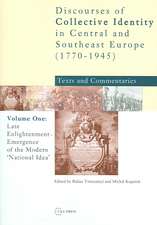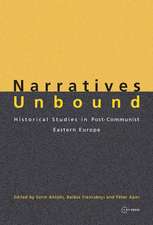Nationalism Reframed: Nationhood and the National Question in the New Europe
Autor Rogers Brubakeren Limba Engleză Paperback – 27 sep 1996
| Toate formatele și edițiile | Preț | Express |
|---|---|---|
| Paperback (1) | 138.74 lei 22-36 zile | |
| Cambridge University Press – 27 sep 1996 | 138.74 lei 22-36 zile | |
| Hardback (1) | 718.21 lei 43-57 zile | |
| Cambridge University Press – 27 sep 1996 | 718.21 lei 43-57 zile |
Preț: 138.74 lei
Nou
Puncte Express: 208
Preț estimativ în valută:
26.56€ • 28.86$ • 22.32£
26.56€ • 28.86$ • 22.32£
Carte disponibilă
Livrare economică 31 martie-14 aprilie
Preluare comenzi: 021 569.72.76
Specificații
ISBN-13: 9780521576499
ISBN-10: 0521576490
Pagini: 216
Ilustrații: black & white illustrations
Dimensiuni: 152 x 229 x 15 mm
Greutate: 0.34 kg
Ediția:New.
Editura: Cambridge University Press
Colecția Cambridge University Press
Locul publicării:Cambridge, United Kingdom
ISBN-10: 0521576490
Pagini: 216
Ilustrații: black & white illustrations
Dimensiuni: 152 x 229 x 15 mm
Greutate: 0.34 kg
Ediția:New.
Editura: Cambridge University Press
Colecția Cambridge University Press
Locul publicării:Cambridge, United Kingdom
Cuprins
Part I. Rethinking Nationhood and Nationalism: 1. Rethinking nationhood: nation as institutionalized form, practical category, contingent event; 2. Nationhood and the national question in the Soviet Union; 3. National minorities, nationalizing states, and external national homelands in the New Europe; Part II. The Old 'New Europe' and the New: 4. Nationalizing states in the old 'New Europe' - and the new; 5. Homeland nationalism in Weimar Germany and 'Weimar Russia'; 6. Aftermaths of empire and the unmixing of peoples.
Recenzii
'Brubaker's framing of a 'pas de trois' of the nationalizing state, the national minority population, and the national homeland illuminates brilliantly the political dynamics of nationalism. His concepts and descriptions are historically rich and sociologically compelling. It will no longer be possible for me to write about nationalism without reference to this masterful set of essays.' David D. Laitin, University of Chicago
'This book makes it clear that Rogers Brubaker is the most brilliant of the younger generation of scholars of nationalism. If the great theoretical ingenuity is seen in the creation of a conceptual apparatus designed to handle the interactions of minorities, external national homelands and nationalising states, what is most impressive is the way in which this leads to high-powered substantive discoveries. Policy makers quite as much as academics can benefit from analyses of Central Europe in the interwar period and after 1989, of differences between Weimar Germany and post-communist Russia, and of differential patterns of the ending of empires. This is a rare acheivement, likely to set the terms of debate for many years.' John A. Hall
'In a series of vigorous and rigorous studies of the shifting triadic relations between 'nationalizing states', 'national minorities', and their 'external national homelands' in postimperial Europe and Eurasia, Rogers Brubaker reconfigures and reframes our understanding of the national question - its eclipse, revival, and manifold metamorphoses. Wedding surgical empirical precision with uncanny analytical perspicacity, geographical scope with historical depth, this book is a theoretical breakthrough and clears a new terrain for a reflexive sociology of the ongoing fabrication of everything we subsume under the falsely self-evident name of 'nation'. Pierre Bourdieu, Ecole des Hautes Etudes en Sciences Sociale
'containuing stimulating ideas, and refreshing thoughts and suggestions, it will undoubtedly find a prominent place among the titles concerning the problems of nations and nationalism.' Contemporary European History
'This book makes it clear that Rogers Brubaker is the most brilliant of the younger generation of scholars of nationalism. If the great theoretical ingenuity is seen in the creation of a conceptual apparatus designed to handle the interactions of minorities, external national homelands and nationalising states, what is most impressive is the way in which this leads to high-powered substantive discoveries. Policy makers quite as much as academics can benefit from analyses of Central Europe in the interwar period and after 1989, of differences between Weimar Germany and post-communist Russia, and of differential patterns of the ending of empires. This is a rare acheivement, likely to set the terms of debate for many years.' John A. Hall
'In a series of vigorous and rigorous studies of the shifting triadic relations between 'nationalizing states', 'national minorities', and their 'external national homelands' in postimperial Europe and Eurasia, Rogers Brubaker reconfigures and reframes our understanding of the national question - its eclipse, revival, and manifold metamorphoses. Wedding surgical empirical precision with uncanny analytical perspicacity, geographical scope with historical depth, this book is a theoretical breakthrough and clears a new terrain for a reflexive sociology of the ongoing fabrication of everything we subsume under the falsely self-evident name of 'nation'. Pierre Bourdieu, Ecole des Hautes Etudes en Sciences Sociale
'containuing stimulating ideas, and refreshing thoughts and suggestions, it will undoubtedly find a prominent place among the titles concerning the problems of nations and nationalism.' Contemporary European History
Descriere
Nationalism Reframed is a theoretically and historically informed study of nationalism in Eastern Europe and the former Soviet Union.
